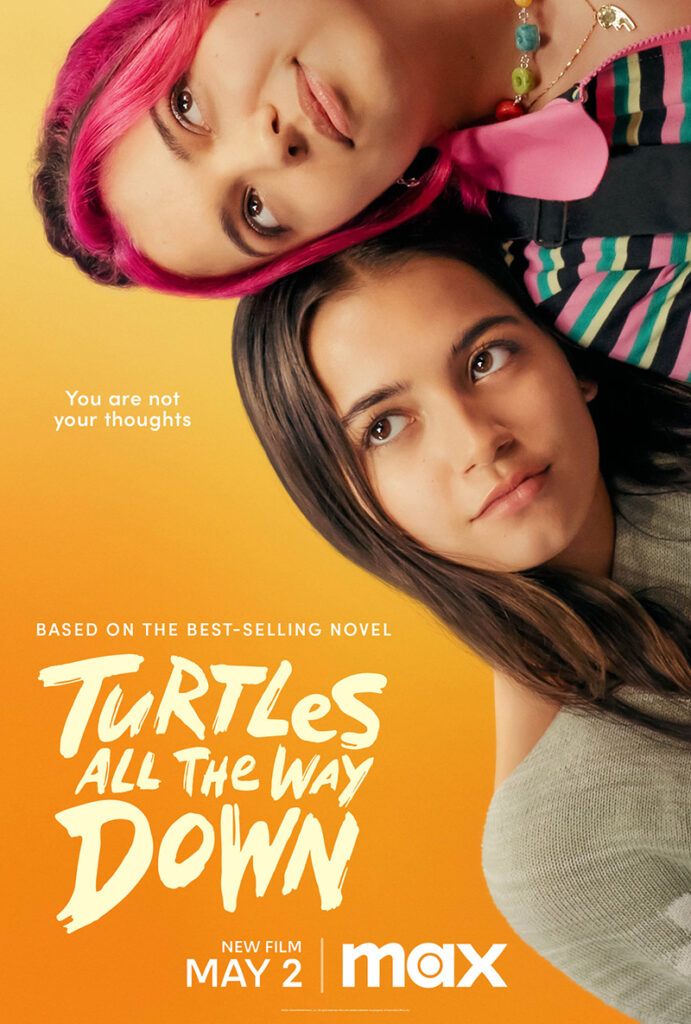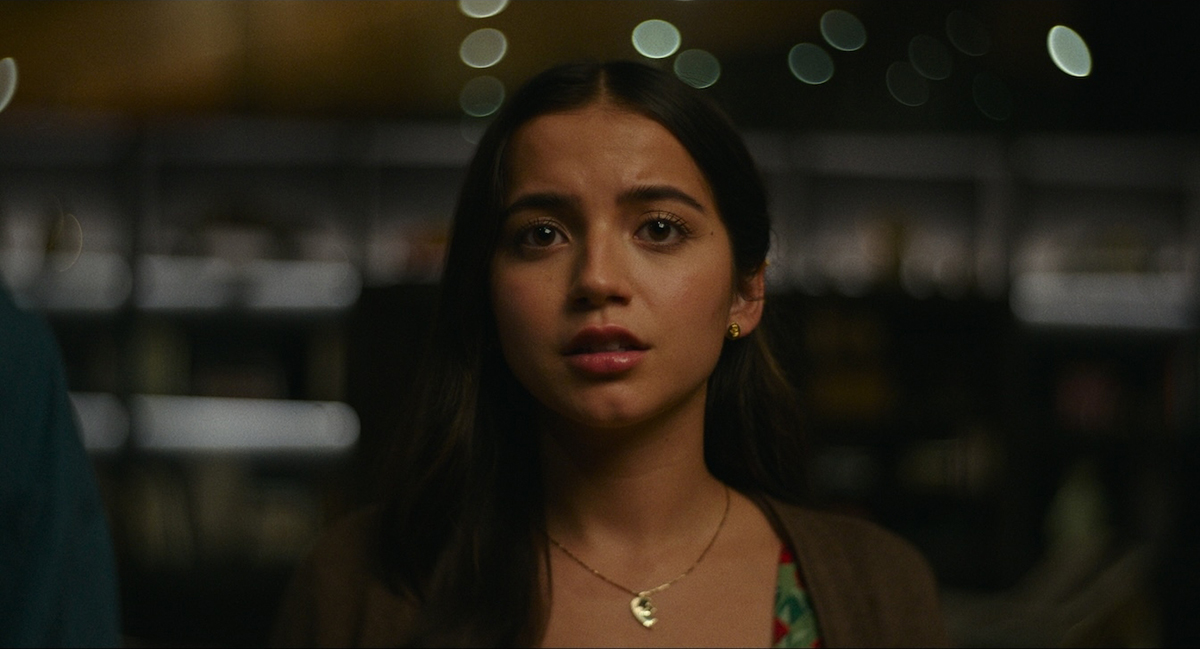The mind is where the brightest ideas and darkest thoughts dwell. In the worst moments for people with mental health issues, these spiral points get tighter, but never end, like a moving trap. This claustrophobic atmosphere is intensely dramatized in the new film Turtles All the Way Down starring Latina Isabela Merced.
The coming-of-age film based on the book by John Green (The Fault in Our Stars, Looking for Alaska, and Paper Towns) waited seven years for its cinematic realization. It didn’t seem easy to translate Aza’s spiral of obsessive thoughts into visual format, but the film’s director, Hannah Marks (Don’t Make Me Go), puts us inside this girl’s head, connecting the rawness of the story with humor, sensitivity, warmth, and kindness, just as Green did with his words in the book.
Aza (Isabela Merced) is a sweet, introverted 17-year-old girl with her own terrors. Her chaotic, repetitive, and overwhelming mind is a reflection of obsessive-compulsive disorder (OCD), which can take different forms in each person.
“You can’t even control your own brain,” Aza claims to herself in one of her worst moments, as she continues to obsess over potential bacteria that can make her sick. She has the same worries, dilemmas, and doubts that all teenagers have, but magnified in ways that make her think she’s just a sweaty freak, incapable of leading an ordinary life that includes a boyfriend.
Aza’s obsessive inner monologue, which constantly interrupts her life, is brilliantly delivered by Merced, a young actress with Peruvian roots and a great future in the industry. And the casting of a Latina in the role is significant – as it reminds our community in particular that it’s okay to not be okay, that mental health struggles are part of life.
At first, the story seems like an adventure that Aza’s thoughts pause, taking us on successive detours. Turtles All the Way Down goes from pulling us into a typical teenage conversation to silencing a crowded restaurant to hear only Aza’s mind. Her fears are not trivial – to her, they are important, even though they may seem unrealistic in the eyes of others. This is how we get it: that’s the way it feels being isolated in the mind of a girl obsessed with a wound on her finger and the potential for infection, particularly from Clostridium difficile or C. diff.
Marks shows Aza’s struggle, but at the same time what it means to the people around her. The raw torment is felt on Aza’s face, but she’s not alone, she’s accompanied by Gina (Judy Reyes), a mother with her own challenges to contain and connect; Daisy (Cree Cicchino), an unconditional friend who, sometimes, needs a break from the intensity; and especially, the pain is in the tears of Davis’ (Felix Mallard) patient love. But the focus never stays fixed on the sweet love story, the amusing unsolved mystery, the tumultuous mother-daughter relationships, or the ups and downs of friendship. It delves into the labyrinths of a brain dealing with obsessive-compulsive disorder, revealing the terrifying side that hides in darkness. These details allow people, and particularly young Latinas, with mental health struggles to feel seen, as well as an opportunity for other audience members to build empathy and a deeper understanding of those with OCD.

Aza can appear selfish from an outsider’s perspective, as she struggles to quiet her thoughts by giving them what they ask for. Daisy, the close friend who understands Aza’s worst moments, suffers from Aza’s self-absorption. In a burst of anger, she accuses her of being extremely self-centered – someone great in small doses, but not so much over longer exposures. Their dialogue is as hurtful as it is realistic, giving shape to the multiple sides of the condition. Here, the disorder is at its most authentic, not embellished with cute quirks, genius, or weird behaviors as it is usually portrayed in fiction.
If you’re expecting the typical happy ending, forget it. Because in real life, problems like OCD are not fixed with a sweet kiss or a gift with great intentions. Life can be amazing at times, but as Daisy says, “I won’t lie to you, it’s going to be hard sometimes.” It sounds like a painful ending, but it’s actually hopeful and honest.

If you are struggling with obsessive-compulsive disorder or want mental health information and resources for someone you love, visit the Crisis Text Line.

